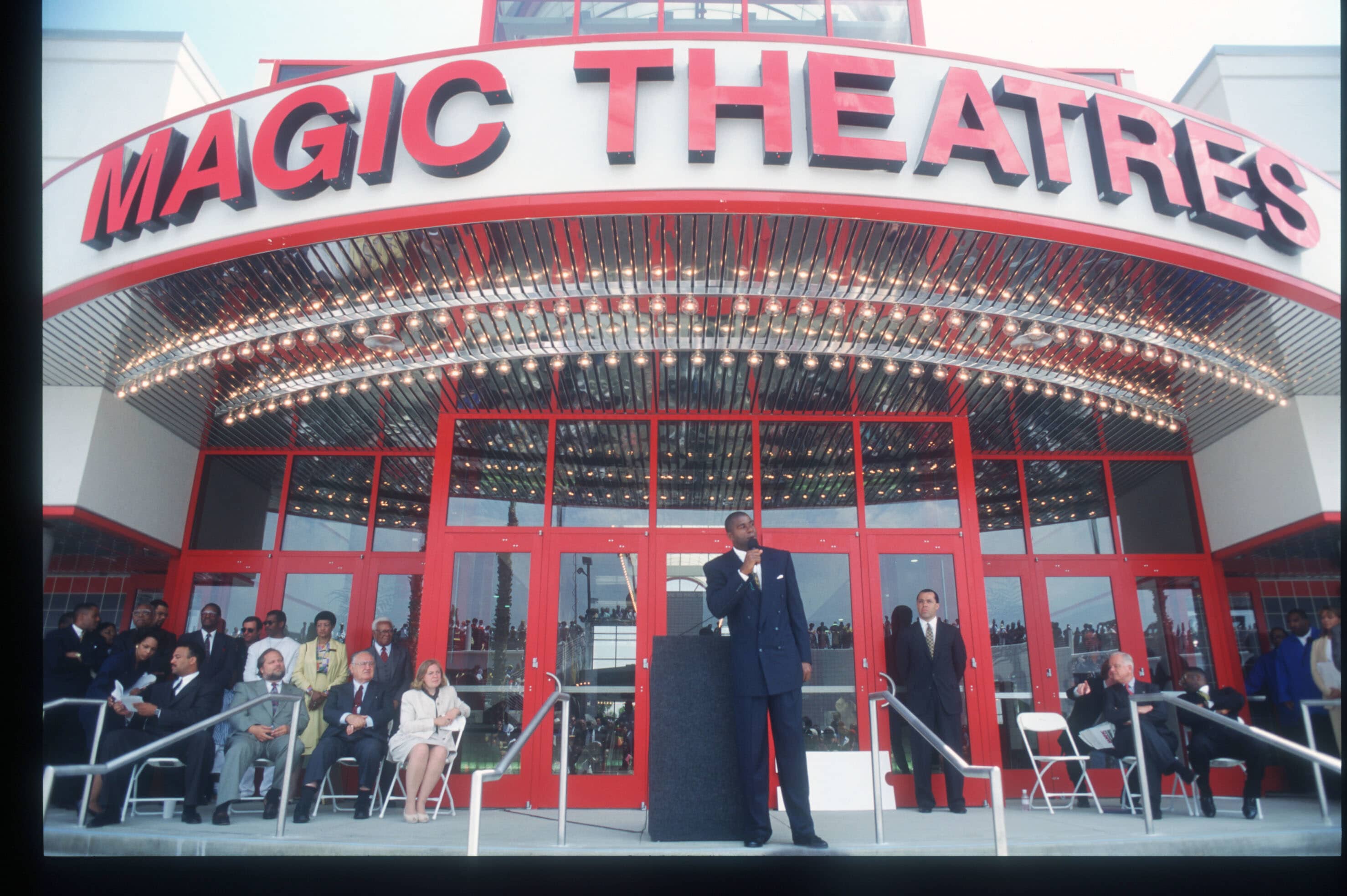While NBA Hall-of-Famer Earvin “Magic” Johnson is known for his impressive basketball skills, he is also legend in the business world. And as a former investor in movie theaters, Johnson is concerned about the future of the industry amid the Covid-19 pandemic.
“I think it’s going to be tough for movie theaters to survive this whole Covid-19 [pandemic]. And also six feet apart,” Johnson tells CNBC Make It.
“I don’t know how they’re going to come back.”
Movie theaters were some of Johnson’s first and most legendary investments.
In the early ’90s, after the L.A. riots (sparked by the acquittal of the LAPD officers in the beating of Rodney King) many business leaders vowed to invest in Black communities. Among them was Johnson.
Johnson formed the Johnson Development Corporation and closed a historical deal with Sony Retail Entertainment — a 50-50 partnership agreement to build movie theaters in underserved communities across America.
“We’re not letting you just come into our community anymore without a partner or without one of us being a partner in that deal,” Johnson told CNNMoney in 1998.
In 1995, Johnson’s corporation opened its first branded theater, a state-of-the-art multiplex called “Magic Johnson Crenshaw 15” in Baldwin Hills, California, South of Los Angeles, where some of the riots had occurred.
According to CNNMoney, Johnson, then 36, put up half the money himself. (At the time, Johnson, who was retired from basketball after announcing he was HIV positive in 1991, had an estimated net worth of close to $100 million, according to CNNMoney.)
Johnson went on to open five more theaters in urban areas like Atlanta, Houston, Cleveland and New York City’s Harlem.
Businessman Richard Riordan, US Councilman Mark Ridley-Thomas and ex-Lakers player Magic Johnson pose with a giant movie ticket June 29, 1995 in Los Angeles.
Jean-Marc Giboux | Hulton Archive | Getty Images
The theaters meant something to people in those communities. At the theaters targeted to Black audiences, “[t]here was an appreciation for my movie dollar,” Oscar Turner, founder of Gallery Road Productions told LA Weekly in 2010. “I felt respected.”
Johnson sold the theaters to Loews Cineplex Entertainment in 2004 (which was later taken over by AMC Entertainment in 2006), according to the Los Angeles Times.
But now, amid the Covid-19 pandemic and social distancing measures, Johnson is worried about the future of movie theaters.
Since March, major movie theater chains like AMC Theatres and Regal Cinemas have been closed due to the pandemic. But on Tuesday, Regal Cinemas announced plans to reopen U.S. theaters on Aug. 21 for the debut of Christopher Nolan’s “Tenet.” AMC recently made a similar announcement to open in late August, according to Deadline. Both AMC and Regal announced new health procedures such as daily health screenings of employees, mandatory face masks for employees and guests and reduced capacities in theaters.
But Johnson thinks theaters will have their work cut out for them.
“They’re going to really have to get together and figure out probably less seats now in the movie theater themselves,” Johnson says. And just like restaurant owners are experiencing, movie theaters will have to adjust to less profits, Johnson says.
“[Movie theaters] may come back but they won’t definitely make the money that they were making before Covid-19,” he says.
Of course, movie theaters had struggles before Covid-19 hit, due to high prices and competition from streaming services like Netflix and Hulu. In 2019, movie ticket sales were down nearly 5% from 2018, according to the National Association of Theater Owners.
And while 2019’s numbers were slightly higher then 2017, according to Deadline, 2017 and 2019 both rank as the worst years for movie ticket buying since 1995.
Still, as a fan of movie theaters, Johnson is hopeful. It’s not just that he owned them — he and his wife of nearly 30 years, Cookie, used to go to the movies every Friday.
“I love the movie going experience. I don’t want to watch movies [at home]. I got a theater but I rather go to the movies. But now my wife and I, we got to rethink that. So here’s a loyal customer,” Johnson says.
Johnson, now 60, is currently the CEO and the founder of Magic Johnson Enterprises (MJE), an investment conglomerate valued at an estimated $1 billion dollars, according to its website. Today MJE invests in everything from financial services firms to hospitality to esports and sports teams. Johnson is also a co-owner of the Los Angeles Dodgers.
Despite concerns about certain industries, Johnson is positive that the “economy will come back.”
“It’s just how soon that’s going to happen,” he says.
CNBC Make It is NOW STREAMING on Peacock. Find our original programming in the Channels section.
Don’t miss:
From 4 am wake up calls to 2-hour workouts: Inside Magic Johnson’s daily routine
